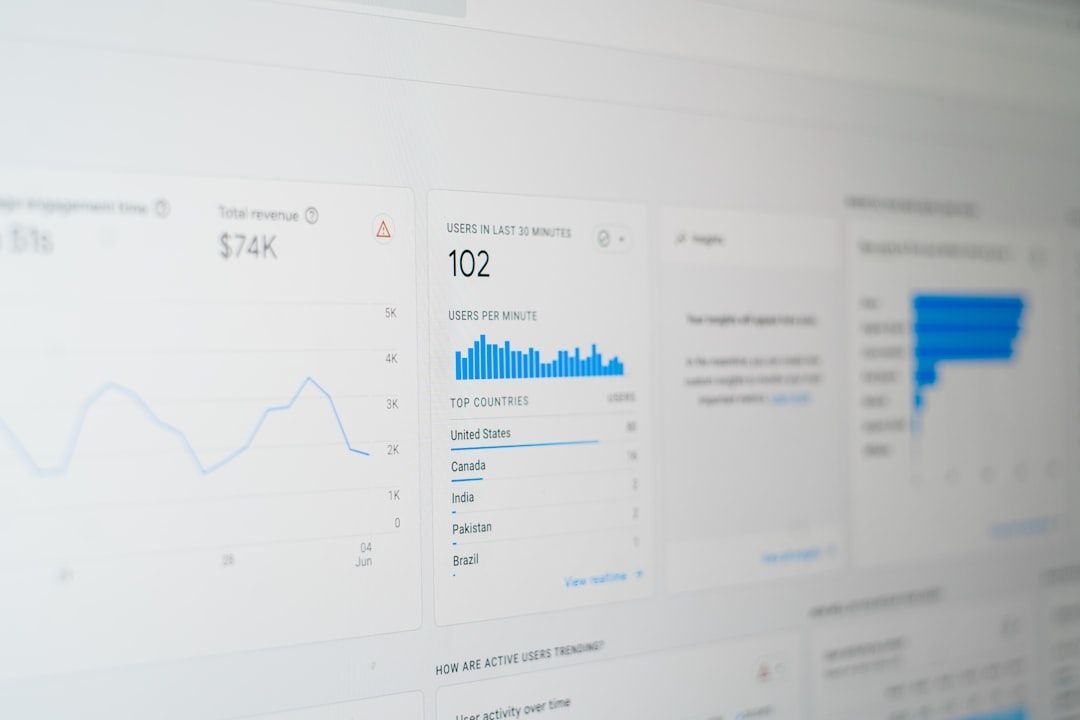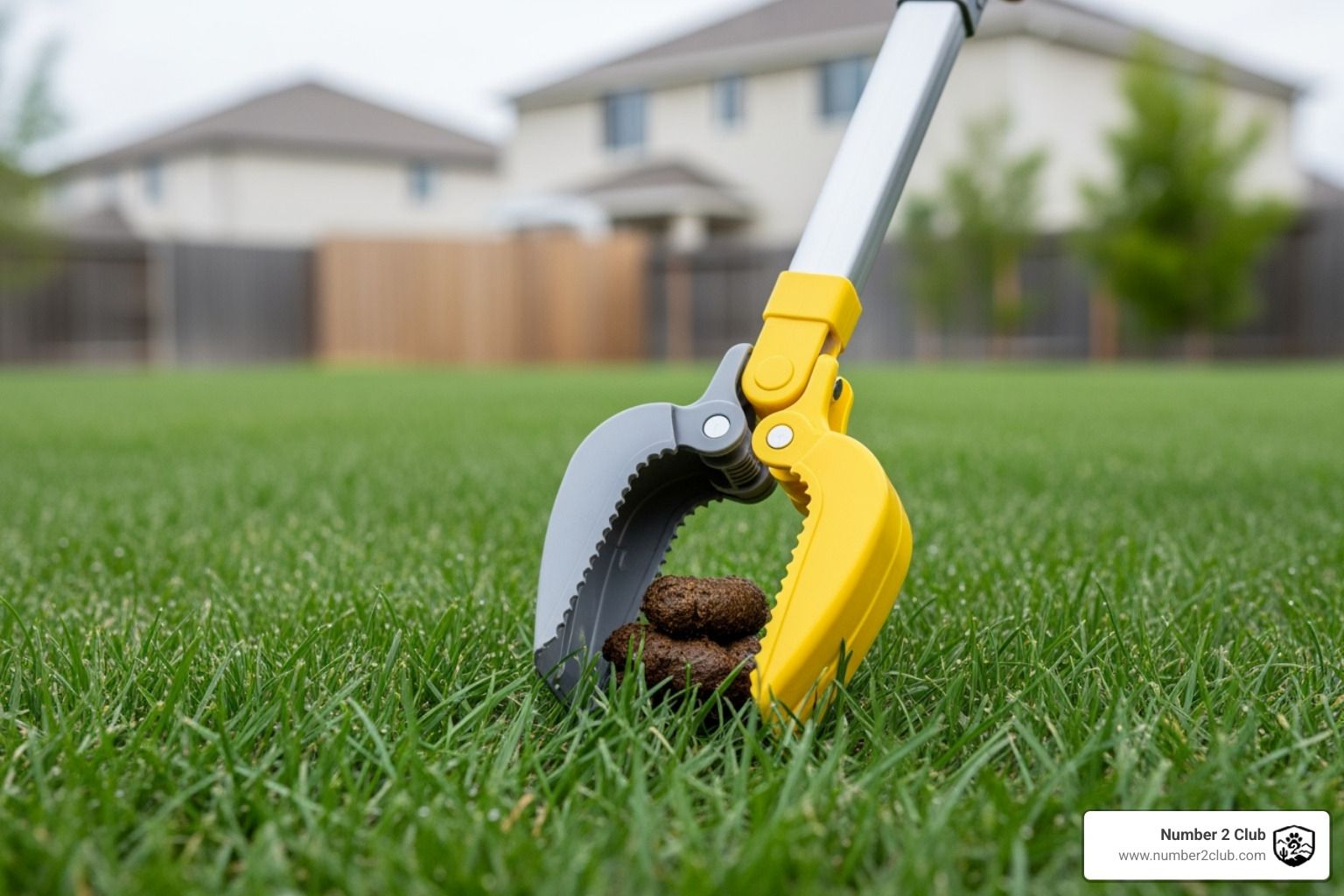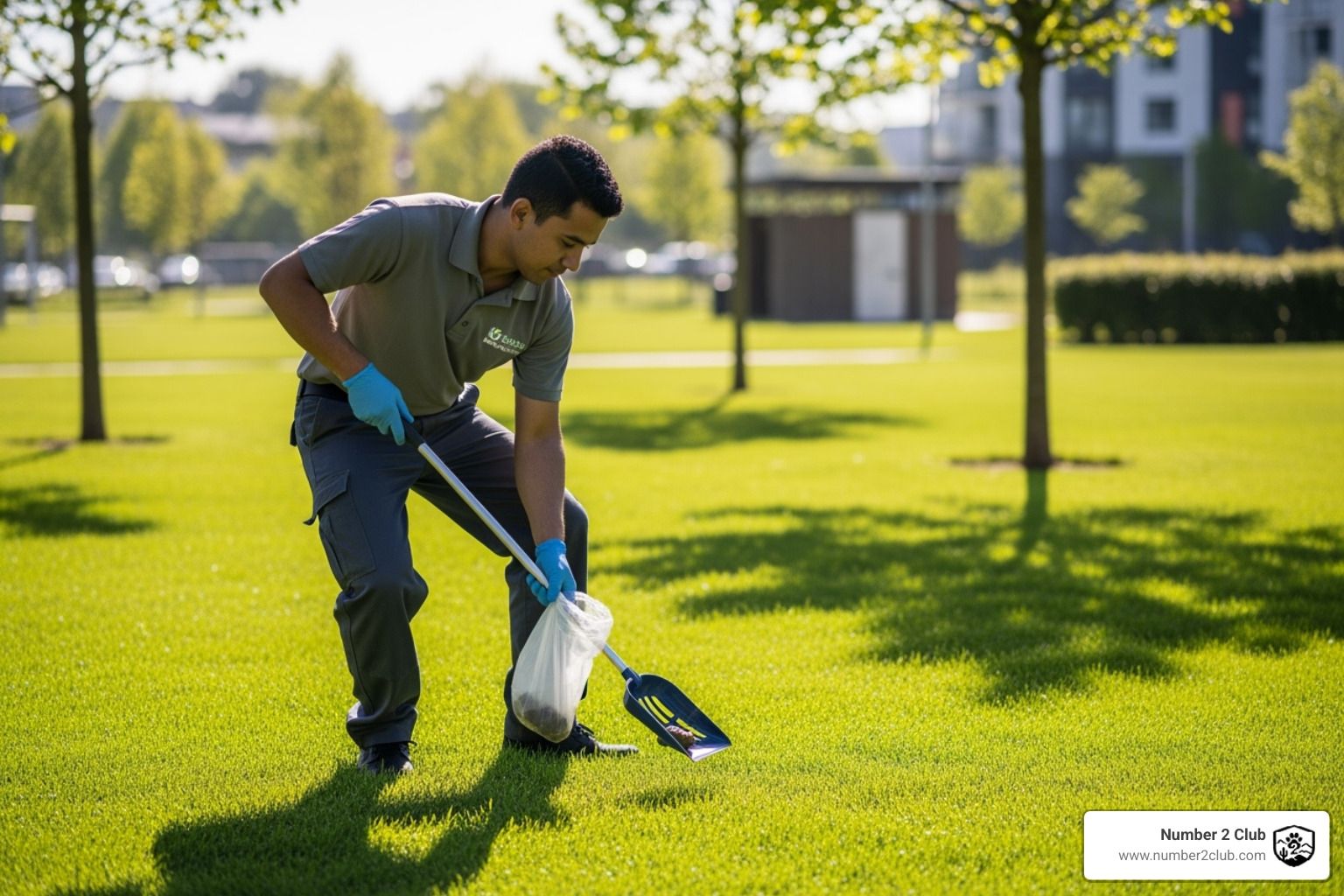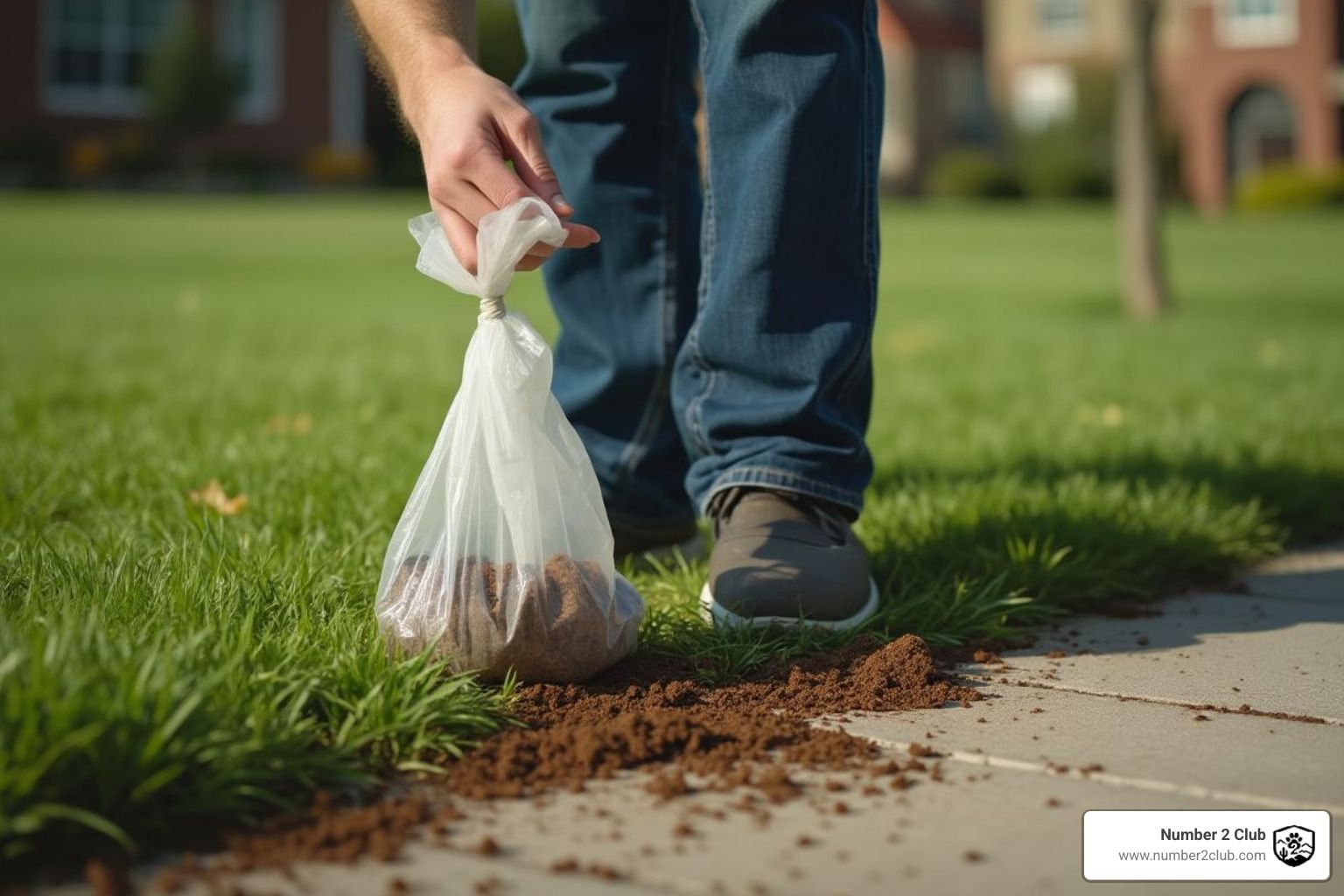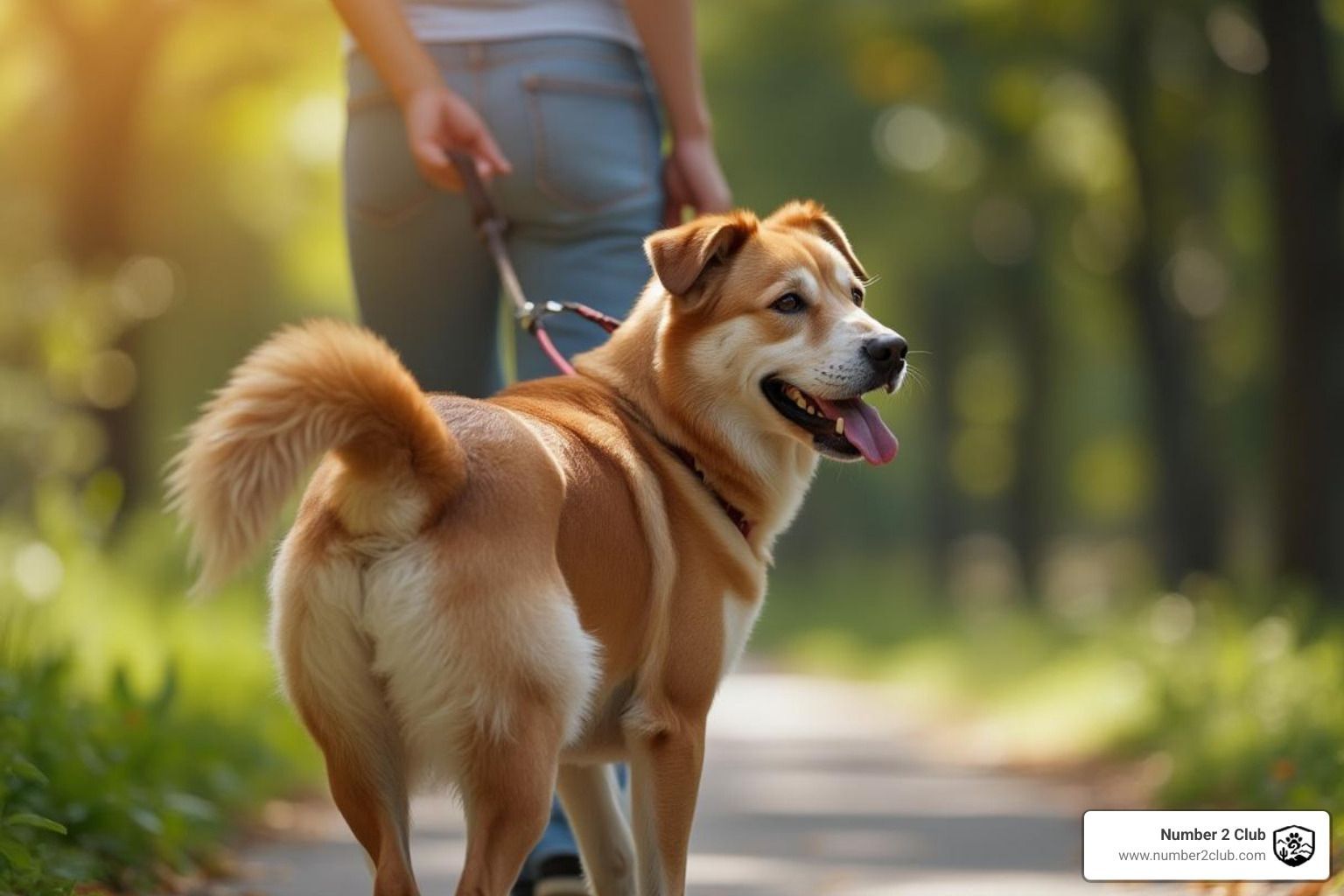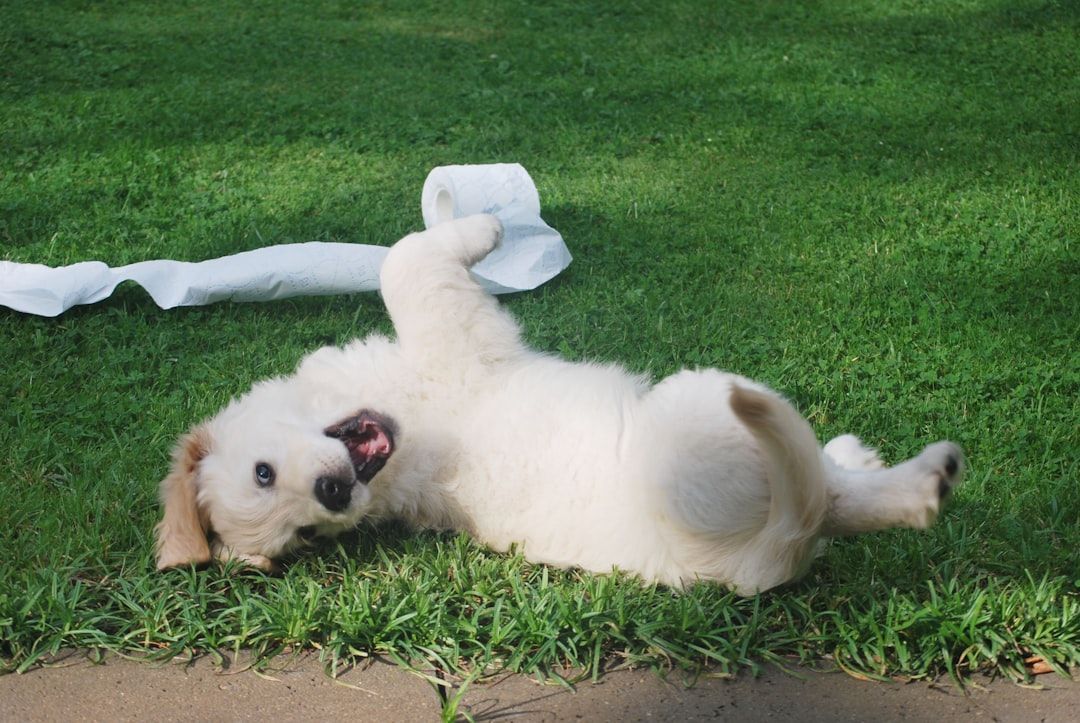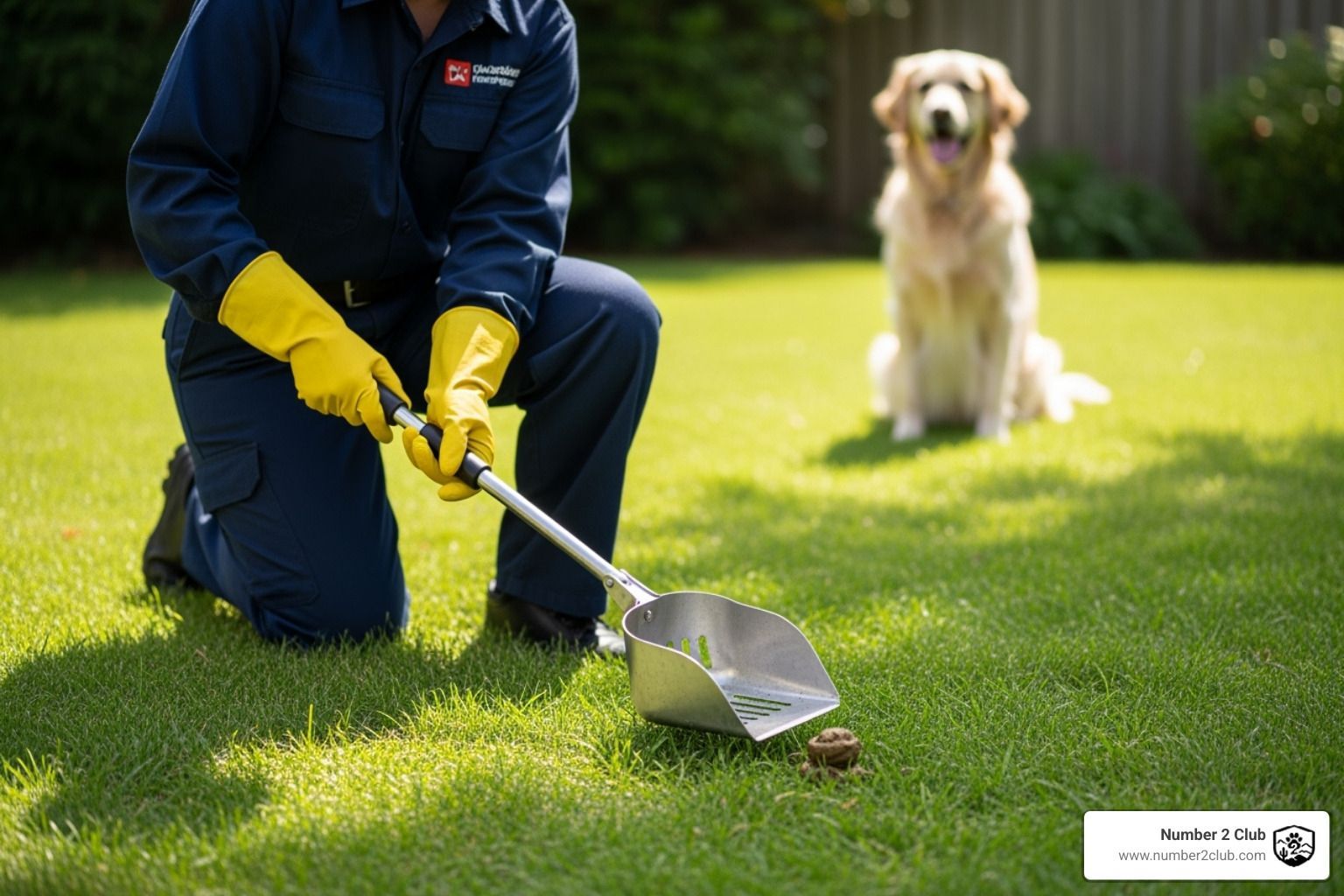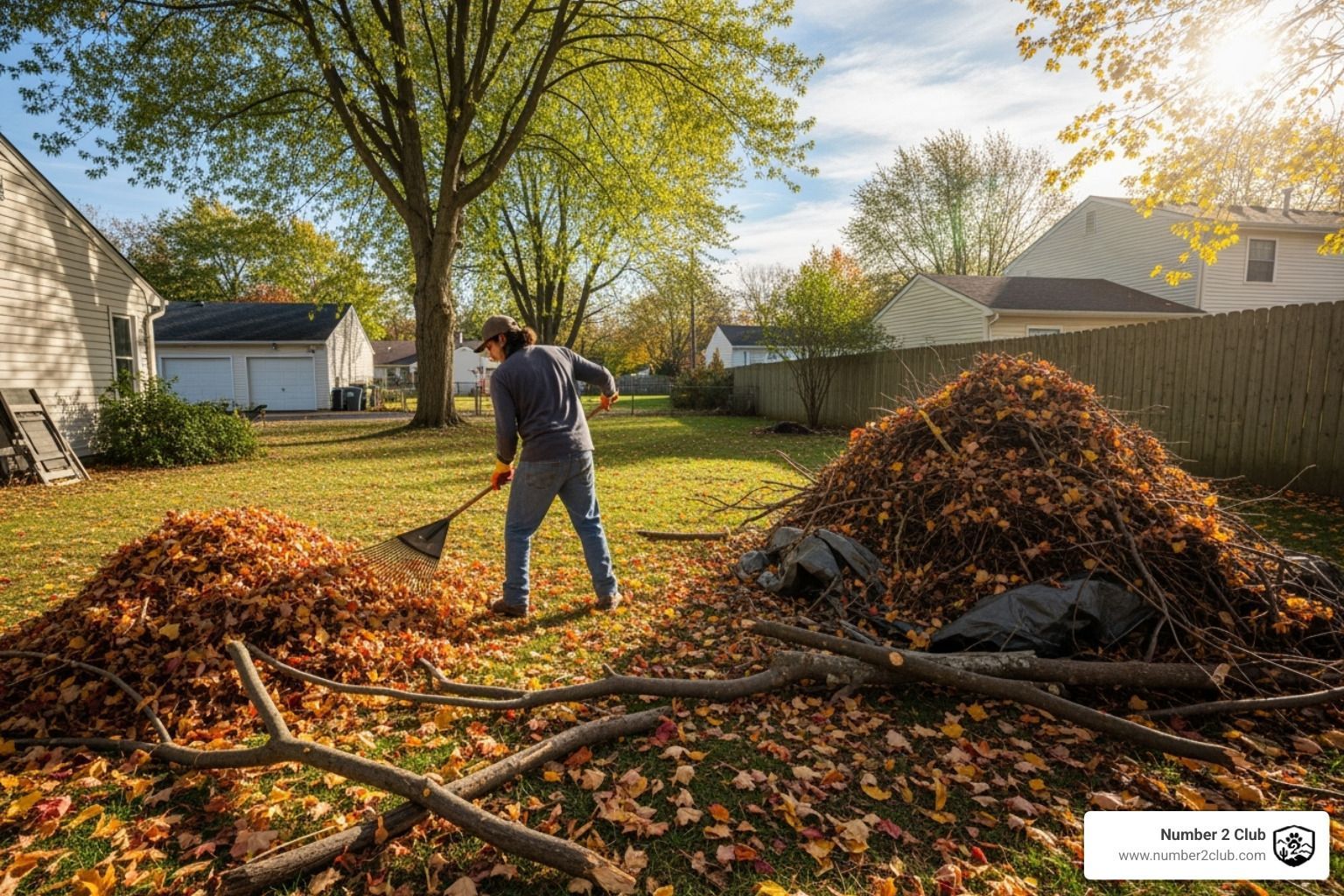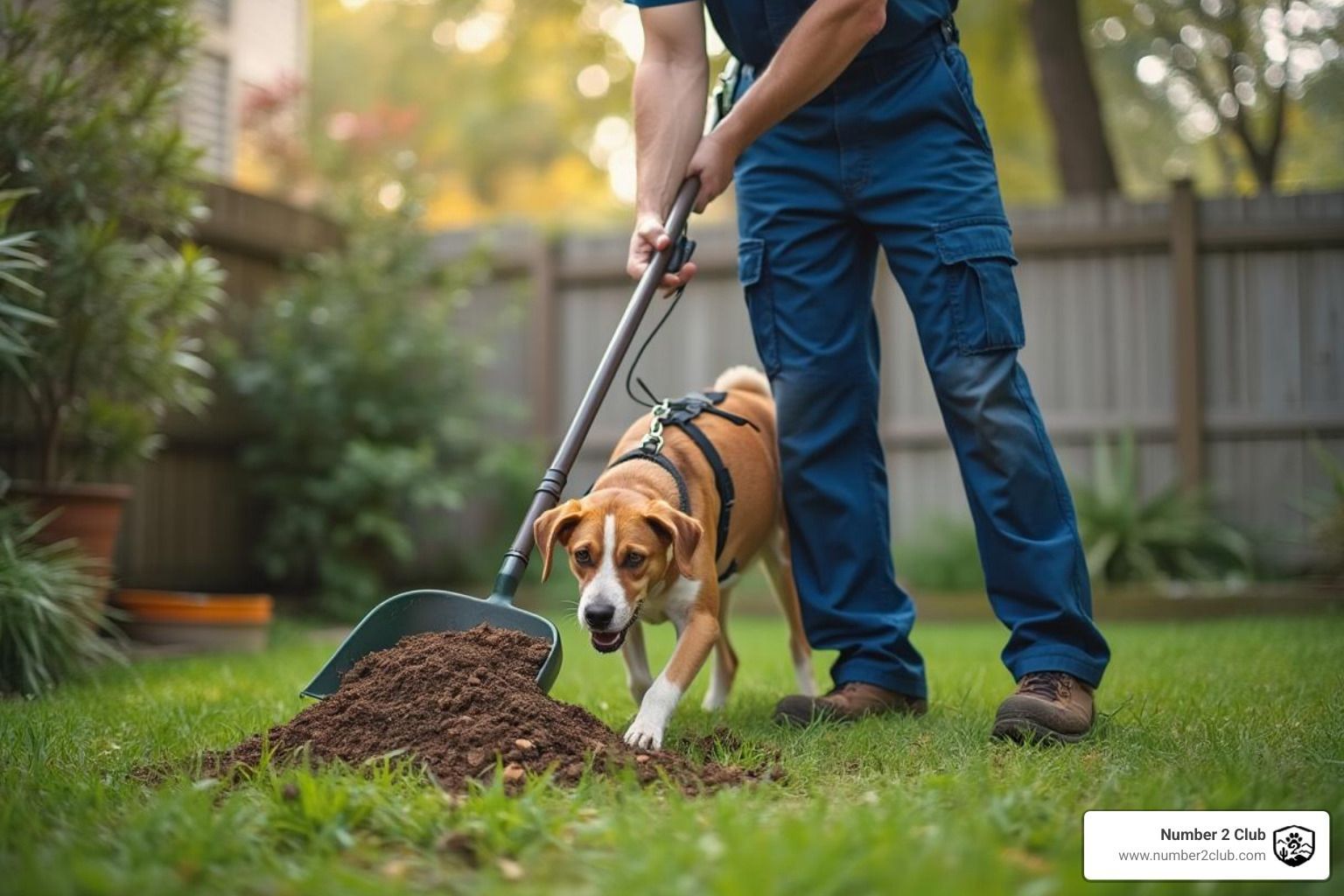Pick Up After Your Pet and Save the World (Or at Least Your Shoes)
It's More Than Just an Eyesore: The Unseen Dangers of Pet Waste
When we talk about pet waste, it's easy to focus on the immediate unpleasantness – the smell, the mess. But the truth is, uncollected pet waste is a significant environmental pollutant and a serious health risk to both animals and humans. It's not just unsightly; it's a ticking time bomb for our communities and natural habitats.
Why You Must Pick Up After Your Pet: A Public Health Perspective
Let's be blunt: pet waste is teeming with pathogens, bacteria, and parasites. These aren't just abstract scientific terms; they represent real threats to our health. For instance, common parasites like roundworms (Toxocara) can be found in dog waste. The CDC even calls roundworm a “neglected parasitic infection,” and studies suggest five percent of the U.S. population have been exposed to it. This means that if we don't pick up after your pet, we're creating invisible minefields of potential illness.
Beyond roundworms, pet waste can harbor a host of other nasties, including Salmonella, E. coli, Giardia, Cryptosporidium, Campylobacteriosis, and even Leptospira. These can cause gastrointestinal infections, severe diarrhea, fever, and other serious health problems in humans.
Who is most at risk? Our children, who play in parks and yards, are especially vulnerable to infection from bacteria and parasites found in pet waste. They're more likely to put their hands in their mouths after touching contaminated surfaces. Adults working in gardens can also unwittingly expose themselves to these pathogens. Even other pets can pick up diseases like Parvovirus or various worms just by sniffing or stepping in contaminated areas. Diseases in poop can even be transmitted by flies or other pets without direct contact, turning a seemingly harmless pile into a vector for widespread contamination. It's about keeping pets (and people) healthy.
How Uncollected Poop Harms Pets and the Environment
The impact of uncollected pet waste extends far beyond direct contact. It's a major contributor to water pollution, a silent killer of aquatic life, and a significant threat to our pets' health.
Consider the highly contagious and often deadly canine parvovirus. This resilient virus can remain infectious on the ground for six months or even longer, posing a constant threat to unvaccinated puppies and vulnerable dogs. When we don't pick up after your pet, we're leaving behind breeding grounds for such dangerous diseases.
The most insidious impact of pet waste is on our water quality. Every time it rains, thousands of pounds of pet waste wash down storm drains and into streams, rivers, and lakes. Crucially, in places like North Central Texas, this water is NOT treated or cleaned before emptying into a body of water. This means all the bacteria, viruses, and parasites from that uncollected waste flow directly into our precious waterways.
Pet waste contains excess nutrients like nitrogen and phosphorus. While these might sound benign, in water, they become pollutants. These nutrients encourage aggressive weed and algae growth, leading to what are known as algae blooms. These blooms make the water cloudy and green, blocking sunlight and depleting oxygen as they decompose. This low oxygen, combined with ammonia released from decaying waste, can kill fish and other aquatic life. The U.S. EPA describes dog waste as containing two types of pollutants: nutrients and pathogens, both of which can wreak havoc on our ecosystems.
It’s a stark reminder that pet waste and water quality are intrinsically linked. What we leave on the ground today can end up in our drinking water or the lakes where we swim and fish tomorrow.
The 'Doo's and Don'ts': How to Properly Pick Up After Your Pet
Now that we understand just how important it is to pick up after your pet, let's talk about the practical side of things. It's a non-negotiable part of being a responsible pet parent, but how do we do it right? We want to be effective, hygienic, and kind to our environment. Think of this as your guide to the 'doo's and don'ts' of pet waste management.
Taking care of pet waste keeps our shared spaces, like this lovely public park, clean and inviting for everyone.
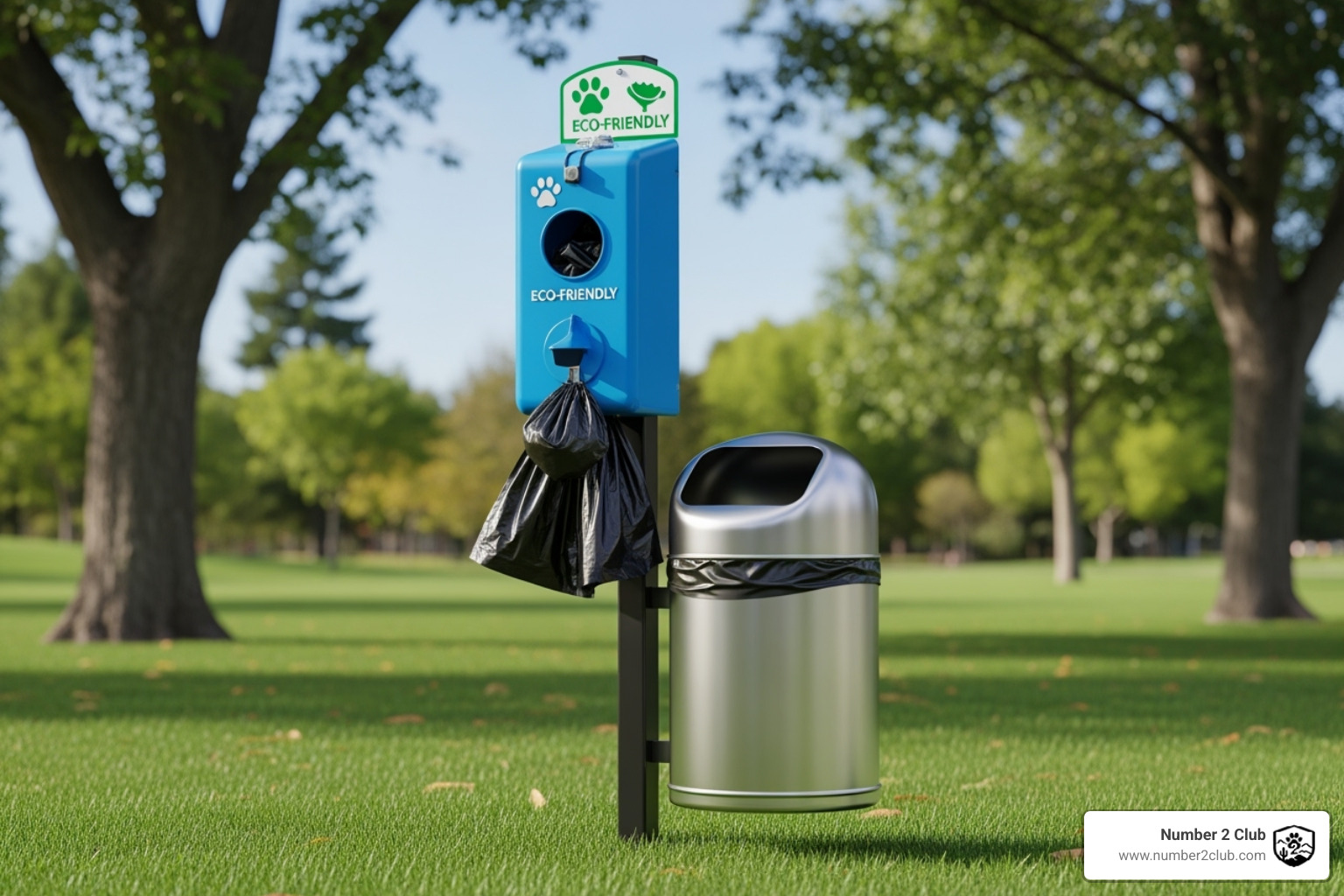
Sometimes, the task can feel a bit overwhelming, especially if you have a big yard or multiple pets. That's where professional services like Number 2 Club's Commercial Dog Waste Removal can be a real lifesaver, ensuring your outdoor spaces stay pristine without you lifting a finger.
The Best Methods to Pick Up After Your Pet
The good news is that scooping poop doesn't have to be a complicated chore. There are a few tried-and-true methods that make the job simple and effective.
First up is the trusty bag-and-hand method. This is what most of us do when we're out and about with our pups. You simply turn a plastic bag inside out, use it like a glove to firmly grab the waste, then flip the bag right side out, trapping the poop inside. Give it a good tie to seal in any odors and prevent spills. A pro tip: always carry several bags when you head out. It's always better to have too many than to suddenly run out when you need one most!
For those who prefer not to get quite so close, or for cleaning up the yard, pooper scoopers are a fantastic tool. They come in different designs, like the spade and rake sets or spring-loaded grabbers. These are great for solid messes and can save your back from a lot of bending. However, we've found they're not always the best choice for those really mushy or diarrhea-like accidents.
If you're tackling larger areas or have multiple pets, a dedicated rake and shovel set can be your best friend. This combo lets you collect bigger quantities of waste more efficiently, keeping your hands clean and your yard tidy.
Now, let's talk about the dreaded loose stool. Every pet owner knows the struggle! If your dog has an accident with runny waste, don't despair. Try these little tricks:
- Sprinkle and Scoop: Lightly sprinkle some dirt or sand over the loose mess. This can help it solidify just enough to make scooping a bit easier.
- Cat Litter Trick: A small amount of clumping cat litter sprinkled on top can also work wonders. It absorbs moisture and helps create a more solid mass that's easier to pick up.
- Freeze Spray: For those truly stubborn, extra-messy deposits, a freeze spray (it's basically aerosolized oxygen) can instantly solidify the waste, making it much simpler to pick up.
No matter which method you choose, hygiene is key! Always, always wash your hands thoroughly with soap and water after handling pet waste. Even if you wore gloves or used a bag, this simple step is super important for preventing the spread of any unwanted germs.
Environmentally Responsible Disposal Options
Once you've successfully scooped the poop, the next big question is: where does it go? How we dispose of pet waste really impacts our environment. Let's look at the most common options and what you need to know about each.
The easiest and most common method for most pet owners, especially in busy areas like Litchfield Park, Goodyear, Verrado, and Buckeye, AZ, is to bag it and trash it. You simply scoop the waste into a bag, tie it securely, and toss it into your regular trash can. Modern landfills are actually pretty amazing! They're carefully designed and monitored facilities that protect our environment from contaminants. So, when you bag it and trash it, you're generally making a safe and responsible choice. The Environmental Protection Agency has more details on how modern landfills work to keep us safe.
Some people wonder about flushing poop down the toilet. If your home is connected to a municipal sewage treatment plant (and not a septic system), some local rules might allow this. However, it's super important to only flush the poop itself, never the plastic bag, even if it claims to be "flushable." Those bags can still cause big plumbing problems! Plus, many cities actually ban pet waste from human toilets because their wastewater systems aren't designed to process it effectively. Always, always check with your local government first to be sure.
As an alternative, especially if you live in a more rural area or have a spacious yard, burying pet waste can be an option. If you choose this, dig a hole at least six to twelve inches deep and cover the waste with at least eight inches of soil. And here's a crucial point: always bury it far away from vegetable gardens and at least 200 feet from any water sources like wells, streams, or lakes. This helps prevent groundwater contamination. While burying won't eliminate all pathogens instantly, it can help contain them.
Finally, there's composting pet waste. This might sound like the most eco-friendly choice, but home composting pet waste is actually quite tricky. Why? Because standard home compost piles usually don't get hot enough to kill the harmful bacteria and parasites (like those stubborn roundworm eggs) found in pet waste. If you were to use such compost on your vegetable garden, you'd risk contaminating your food. Industrial composting facilities, on the other hand, are often equipped to reach the high temperatures needed to break down pet waste effectively and neutralize those pathogens. For specific instructions on composting dog poop in specialized systems, resources like the USDA offer helpful guidance.
For those times when your yard needs a truly comprehensive clean-up, perhaps after a big party or when you're moving into a new home, Number 2 Club offers convenient One-Time Dog Poop Cleanup services to get things sparkling clean.
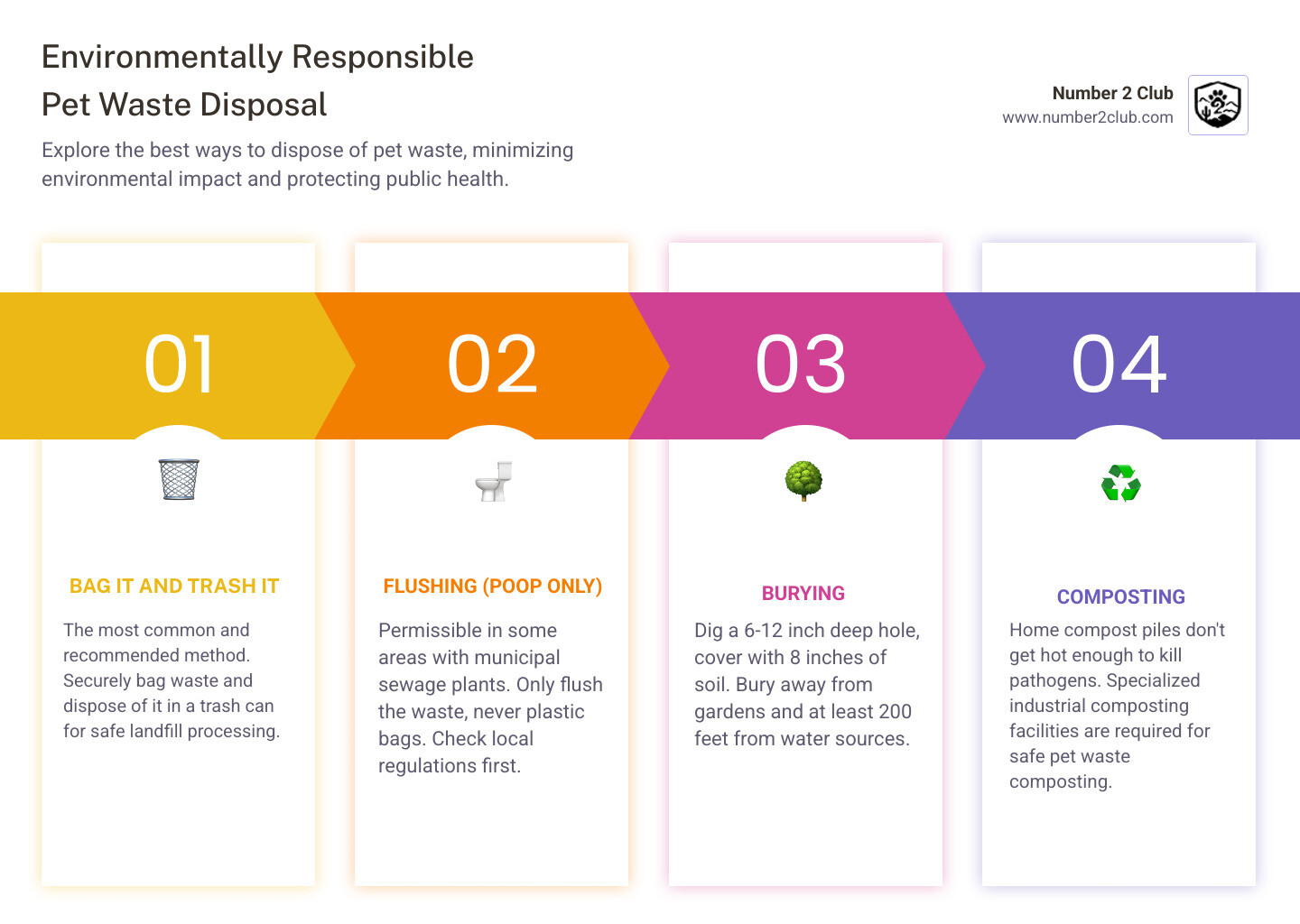
Debunking Poop Myths: What You Thought You Knew About Pet Waste
Alright, pet parents, let's chat about some common ideas floating around about pet waste. You might be surprised by what you thought you knew! There are a couple of persistent myths that, unfortunately, often lead to pet owners leaving their furry friend's deposits behind. But understanding the truth behind these misconceptions is a huge step towards being a responsible pet owner and a great neighbor.
Myth #1: Dog Poop is a Natural Fertilizer
This one is a classic! Many of us have probably heard or even thought that dog poop, just like cow manure, will naturally fertilize our lawns or gardens. After all, it's "natural," right? But take a look at those familiar yellow, burnt patches on grass – chances are, dog urine and poop are the culprits.
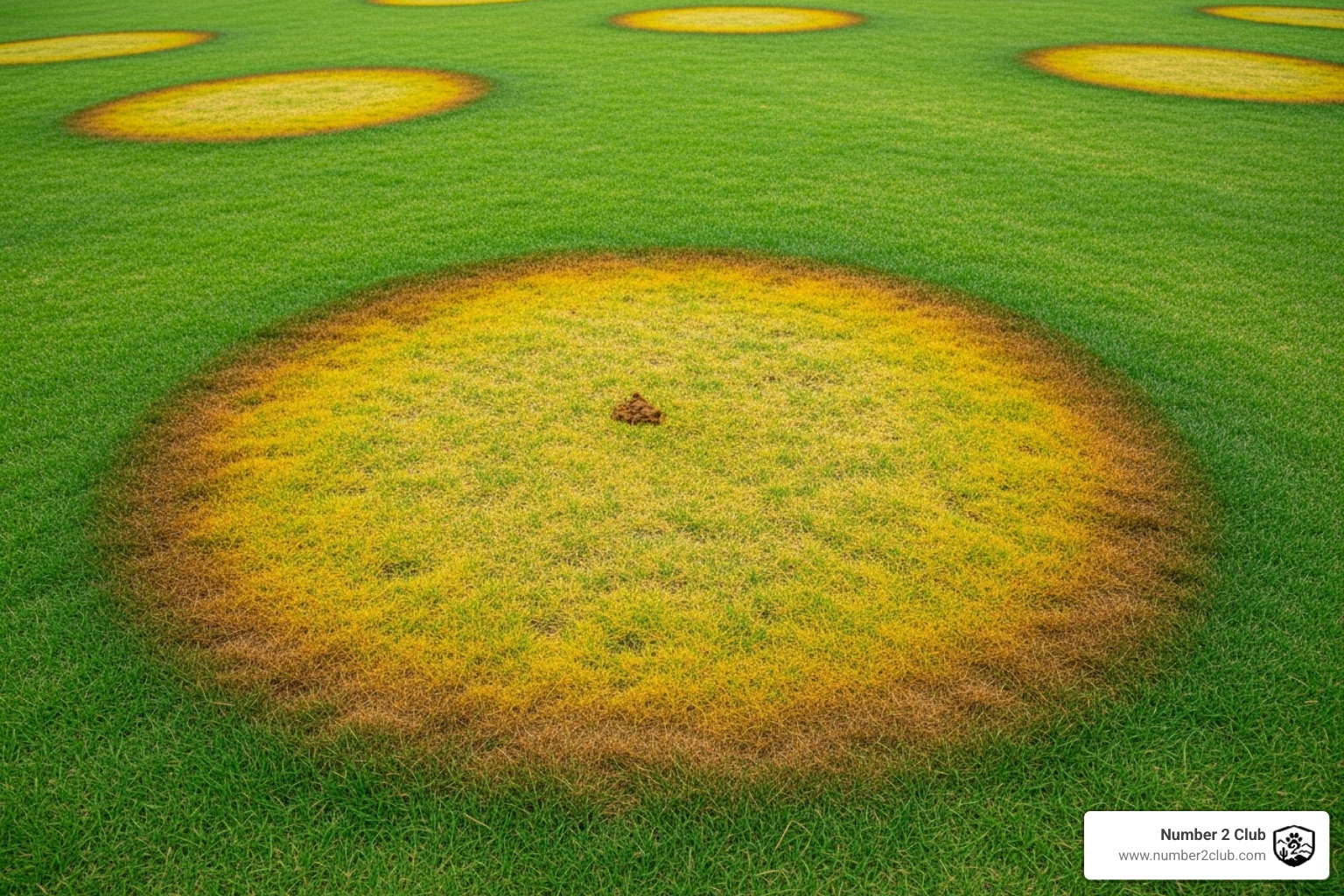
The truth is, dog poop is absolutely not a fertilizer; it's actually a pollutant that's harmful to your plants. Think of it this way:
- It's too acidic and high in nitrogen. Unlike gentle fertilizers, dog waste is made very acidic through their digestion. This, combined with high nitrogen levels, is like a chemical burn for your grass and plants, causing them to wither and die. If you wanted to help your lawn, you'd pick up after your pet!
- Carnivore vs. Herbivore. Cow manure comes from animals that eat plants, making their waste great for soil. But dogs are carnivores (or at least eat a lot of meat!). Their digestive systems produce waste with a completely different makeup, packed with high protein, fats, and a scary amount of bacteria and parasites.
- Nutrient Overload & Pathogens. While there are some nutrients in dog poop, it's an overwhelming amount of the wrong kind for most plants. Plus, it's a breeding ground for all those nasty pathogens we talked about earlier. Imagine trying to fertilize your garden and accidentally spreading diseases instead. Yikes!
So, next time you think you're giving your lawn a boost by leaving Fido's business behind, remember: dog poop is toxic for your grass.
Myth #2: It's Natural Because Wild Animals Do It
Ah, the classic argument: "Wild animals poop outside, so why can't my dog?" It's a fair question, and it sounds logical on the surface. But there's a crucial difference that explains exactly why we must pick up after your pet.
Nature has its own delicate balance. Wild animals are spread out over vast areas, and their waste is part of a natural decomposition cycle. The ecosystem is designed to handle it. Our urban and suburban areas, however, are a completely different story.
Think about it: in many urban spots, we have an average of 125 dogs per square mile! Compare that to a wild ecosystem, which might only support one or two dogs per square mile. This incredible concentration of dogs (and their daily deposits!) simply overwhelms nature's ability to break it down safely. There's just too much of a good thing... or in this case, a bad thing!
Plus, our domesticated dogs often eat a very different diet than wild animals. Their waste introduces bacteria and parasites that aren't native to the local environment, disrupting that natural balance. You simply cannot compare wildlife poop versus dog poop. Leaving dog waste behind creates a highly concentrated source of pollution that nature simply can't process adequately, leading to all the problems we've highlighted earlier, from water contamination to public health risks.
Gearing Up for the Job: Essential Tools for Hygienic Cleanup
Now that we're all on the same page about why it's so important to pick up after your pet, let's shift our focus to the how. Having the right tools makes this essential chore much easier, more hygienic, and ensures we're doing our part responsibly. Think of it as gearing up for a very important mission – keeping our communities clean and healthy!
The good news is, you don't need a lot of fancy equipment. Often, the simplest tools are the most effective. Our absolute first line of defense is always poop bags. These little heroes are indispensable for quick pickups, whether you're out on a walk or just tidying up the backyard. For those who prefer a bit more distance (or have a lot of ground to cover), a good pooper scooper can be a game-changer. And for ultimate convenience, don't forget leash-mounted bag dispensers – because forgetting bags at home is a classic mistake we've all made! For at-home disposal, an outdoor waste pail with a tight-fitting lid is perfect for containing odors until trash day. And if your furry friend enjoys late-night strolls, a flashlight for night cleanup ensures no "surprises" are left behind. For extra peace of mind, some folks even like to use disposable gloves. If you're looking for more advanced tools or even professional help, our team at Number 2 Club offers top-notch Professional Poop Scoopers services.
Choosing the Right Poop Bags
The humble poop bag is our trusty companion in this endeavor. But did you know that not all bags are created equal? Our choice here really does have an environmental impact.
Most of us reach for plastic bags because they're convenient and readily available. However, they contribute significantly to plastic pollution. It's a staggering thought: around 415 billion plastic dog poop bags are tossed out every single year! That's a massive amount of plastic, and these bags can actually "mummify" dog waste in landfills, slowing down its decomposition for many, many years. A great way to lessen this impact is to reuse plastic bags you already have, like those from bread, newspapers, or produce.
Then there are biodegradable bags. These are designed to break down faster than regular plastic. Sounds great, right? The challenge is that their effectiveness can vary a lot depending on where they end up. Landfills are often sealed off from oxygen, which means even "biodegradable" materials can take a very long time to break down. A recent study in the journal Environmental Pollution digs into just how complex plastic degradation can be.
And finally, compostable bags. These are a step up, specifically designed to break down in composting environments. They're a greener choice, but they usually need very specific conditions, often found in industrial composting facilities, to truly do their job. If they end up in a regular landfill, they might not break down as intended.
The best bag is the one you consistently use to pick up after your pet, followed by proper disposal. Consistency is key!
Helpful Tools to Make the Job Easier
Beyond just bags, there are several other clever tools that can make your cleanup routine a breeze.
As we mentioned, pooper scoopers come in all shapes and sizes. If you've got a big yard or multiple dogs, a rake and spade scooper can save your back and make quick work of larger cleanup jobs. For walks, a claw or grabber scooper is perfect for a fast, hands-free pickup. They really do keep things tidy and reduce how much you have to bend down.
Ever find yourself out on a walk, reaching for a bag, only to realize you left them at home? That's where leash-mounted bag holders come in handy! These little dispensers clip right onto your dog's leash, ensuring you always have bags ready when nature calls. It's a small thing, but it makes a big difference.
For home use, a dedicated outdoor trash can with a lid is a must. It helps contain any lingering odors and keeps pests (and curious little hands!) away from the waste until trash day. And for those of us with night owls, a bright flashlight for night cleanup is indispensable. It helps you quickly spot and collect any waste you might otherwise miss in the dark.
We know that even with the right tools, keeping up with pet waste can sometimes feel overwhelming. If you find yourself in that boat, or simply want to reclaim your valuable time, professional services are available. Our team at Number 2 Club is here to help with professional poop scooping, and we even offer Yard Sanitizing and Deodorizing Service to keep your outdoor spaces fresh, clean, and smelling great.
Frequently Asked Questions about Picking Up Pet Waste
We've covered a lot of ground, but some questions pop up frequently when it comes to pet waste cleanup. Let's address the most common concerns directly.
Is it illegal if I don't pick up after my pet?
Yes, in most municipalities, it is illegal if you don't pick up after your pet. This isn't just a social courtesy – it's the law. Local ordinances across the country classify uncollected pet waste as a public nuisance, and leaving it behind can result in real fines and penalties.
The specific laws vary by city and county, but the general trend is towards stricter enforcement. In our service areas like Litchfield Park, Goodyear, Verrado, and Buckeye, AZ, residents are expected to comply with local regulations that require immediate cleanup.
Some cities impose fines ranging from $50 to $500 for first-time offenders, with repeat violations carrying even steeper penalties. It's always best to check your specific city or county's municipal bylaws to understand the exact requirements and potential fines in your area.
How long can diseases from pet waste survive on the ground?
This is where things get really concerning. The survival time of pathogens from pet waste depends on the specific pathogen and environmental conditions like temperature, moisture, and sunlight exposure. However, some can be incredibly resilient.
Parvovirus can remain infectious in the environment for six months or even longer. This highly resistant virus can survive freezing temperatures, heat, and even some disinfectants. It's particularly dangerous for unvaccinated puppies and can be fatal.
Roundworm eggs are even more persistent. These hardy eggs can survive in soil for years, long after the visible waste has completely decomposed. They're resistant to most weather conditions and can remain viable through multiple seasons.
This prolonged survival underscores why prompt and thorough cleanup is critical. The longer waste sits, the greater the risk of disease transmission to both humans and other pets. When we pick up after your pet immediately, we're breaking the cycle of contamination before these pathogens have a chance to establish themselves in the environment.
Can I put dog poop in my regular compost bin?
No, we strongly recommend against putting dog poop in your regular home compost bin. While composting is an excellent way to recycle organic materials, dog waste is different and requires special handling.
Home compost piles don't get hot enough to kill the harmful bacteria, viruses, and parasites present in dog feces. Most backyard compost systems reach temperatures between 90-140°F, but eliminating dangerous pathogens like roundworm eggs requires sustained temperatures of 165°F or higher.
There's also a contamination risk to consider. If you were to use compost containing these surviving pathogens on your vegetable garden, you would risk contaminating your food. This could lead to serious illness for your family.
Specialized systems are required for true composting of pet waste. These are high-heat composting systems designed to reach and maintain the temperatures necessary to neutralize harmful elements. Industrial facilities or specific pet waste composters built for this purpose are the only safe options. The USDA provides specific instructions for these specialized systems.
So, for the safety of your family and your garden, keep pet waste out of your regular compost and stick to proper disposal methods we've discussed.
Conclusion
We've covered a lot of ground today, haven't we? From the moment we step outside with our furry friends, we take on a special responsibility. As we've explored, the simple act of picking up after your pet is far more significant than just keeping our shoes clean.
It might seem like a small thing, but every scoop is truly a giant step towards a healthier, happier community. We've seen how uncollected waste isn't just an eyesore; it's a silent threat to our environment, polluting our precious water sources and harming aquatic life. More importantly, it's a serious public health concern, spreading nasty bacteria and parasites that can make both our beloved pets and our families sick.
By simply bagging and trashing that 'doo,' we're not just being tidy; we're being good neighbors, protecting our parks, and keeping our shared spaces safe for everyone to enjoy. It really is your "doo-ty," and it's a duty we can all easily fulfill.
And if life gets busy, or you just prefer to leave the dirty work to the pros, Number 2 Club is always here to help. We offer reliable Dog Waste Removal services, ensuring your yard stays clean, safe, and fresh, so you can enjoy more time with your furry family members, without the mess.

